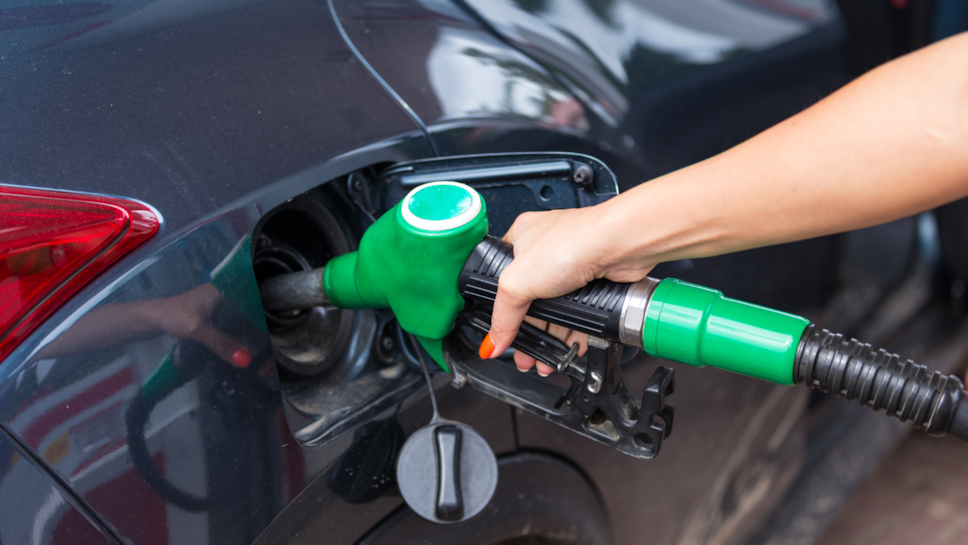
Don’t be a fuel: Over a quarter of motorists admit to filling up their car with the wrong type of fuel
The motoring experts at Go.Compare car insurance have found that over a quarter (29%)* of people have accidentally filled their cars, bikes or vans with the wrong type of fuel, according to new research out today.*
The comparison site asked over 1000 motorists* who either own or rent a car, motorbike or van if they’d ever accidentally filled up at a petrol station using the wrong type of fuel and it found that:
- Men are more likely to misfuel than their female counterparts – with a third (33%) of men saying they’ve accidentally used the wrong fuel to fill up, compared with 23% of women.
- Younger motorists seem to be more at risk of misfuelling with over half (54%) of those aged 18-24 admitting that they’ve previously used the wrong pump to fill-up their vehicle, compared with just 12% of motorists aged 55 and over.
- London-based motorists are more likely to use the wrong pump than any other region, with 48% of those based in the capital saying that they have used the wrong type of fuel.
“Misfuelling” is a term used to describe when the wrong type of fuel is used to fill up a vehicle, for example, if you put petrol into a diesel engine or vice versa. This can cause significant damage, which often isn’t covered as standard in a car insurance policy.
Go.Compare found that 62% of car insurance policies do not cover you for loss or damage as a result of using the wrong fuel,** meaning that an accidental misfuel could do damage to your bank balance as well as your car.
Tom Banks, Go.Compare car insurance spokesperson, said: “Our research shows that misfuelling is a surprisingly common mistake that people make – and with many car insurance policies not covering this as standard, it could be a really costly error.
“If your policy does cover misfuelling, this could help pay for the cost of draining and flushing your tank. Some policies may also cover the cost of repairs needed because of misfuelling, but it’s important to check, as many car insurance policies might exclude misfuelling altogether, leaving you unprotected.
“In the event you do accidentally fill up with the wrong fuel, it’s important not to turn your key in the ignition or try to drive away as this can potentially cause thousands of pounds worth of damage. Provided you haven’t started the engine, you may be able to fix the problem by draining and cleaning the tank. Most breakdown policies will cover the cost of draining your car’s fuel tank and taking it to a garage if needed.
“We definitely recommend taking the time to check whether you have breakdown cover as part of your car insurance, or as standalone cover – and what the limits of your policies are – because as our research shows, these kinds of mistakes happen more often than you might think.”
For more information about misfuelling and the cover available, visit: http://www.gocompare.com/car-insurance/misfuelling-cover/.
- Ends –
Contact Information
Rubie Barker
Notes to editors
*The research was conducted by Censuswide, among a sample of 2000 UK Nationally Representative Consumers, aged 18+. 1262 respondents said they currently own/rent a car/van/motorbike. The data was collected between 18.03.2025 - 21.03.2025. Censuswide abides by and employs members of the Market Research Society and follows the MRS code of conduct and ESOMAR principles. Censuswide is also a member of the British Polling Council.
**Analysis of 322 comprehensive car insurance policies on Defaqto, 9th April, 2025.
For further information please contact:
Lynsey Walden – lynsey.walden@gocompare.com
Or you can call 02920 020360.
Keep up-to-date with GoCompare on Twitter; @Go.Compare
About Go.Compare
Go.Compare is a comparison website that enables people to compare the costs and features of a wide variety of insurance policies, financial products and energy tariffs.
It does not charge people to use its services and does not accept advertising or sponsored listings, so all product comparisons are unbiased. Go.Compare makes its money through fees paid by the providers of products that appear on its various comparison services when a customer buys through the site.
When it launched in 2006, it was the first comparison site to focus on displaying policy details rather than just listing prices, with the aim of helping people to make better-informed decisions when buying their insurance. It is this approach to comparing products that secured the company an invitation to join the British Insurance Brokers’ Association (BIBA) in 2008, and it is still the only comparison site to be a member of this organisation.
Go.Compare has remained dedicated to helping people choose the most appropriate products rather than just the cheapest and works with Defaqto, the independent financial researcher, to integrate additional policy information into a number of its insurance comparison services. This allows people to compare up to an extra 30 features of cover.
Go.Compare is part of Future Plc and is authorised and regulated by the Financial Conduct Authority (FCA).
More information can be found here www.gocompare.com or here https://www.futureplc.com/brands/.
